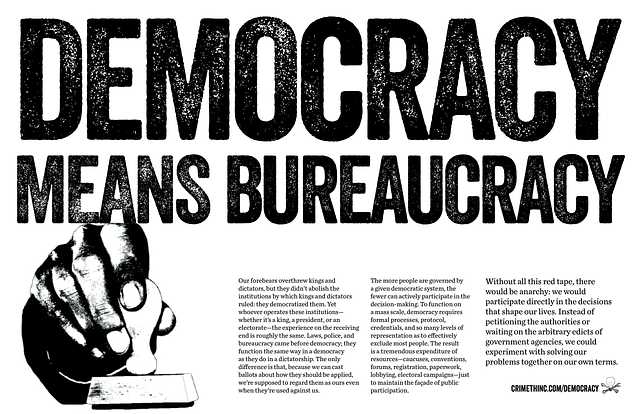An addition to our classic poster series, What Does Democracy Mean?
Our forebears overthrew kings and dictators, but they didn’t abolish the institutions by which kings and dictators ruled: they democratized them. Yet whoever operates these institutions—whether it’s a king, a president, or an electorate—the experience on the receiving end is roughly the same. Laws, police, and bureaucracy came before democracy; they function the same way in a democracy as they do in a dictatorship. The only difference is that, because we can cast ballots about how they should be applied, we’re supposed to regard them as ours even when they’re used against us.
The more people are governed by a given democratic system, the fewer can actively participate in the decision-making. To function on a mass scale, democracy requires formal processes, protocol, credentials, and so many levels of representation as to effectively exclude most people. The result is a tremendous expenditure of resources—caucuses, conventions, forums, registration, paperwork, lobbying, electoral campaigns—just to maintain the façade of public participation.
Without all this red tape, there would be anarchy: we would participate directly in the decisions that shape our lives. Instead of petitioning the authorities or waiting on the arbitrary edicts of government agencies, we could experiment with solving our problems together on our own terms.
